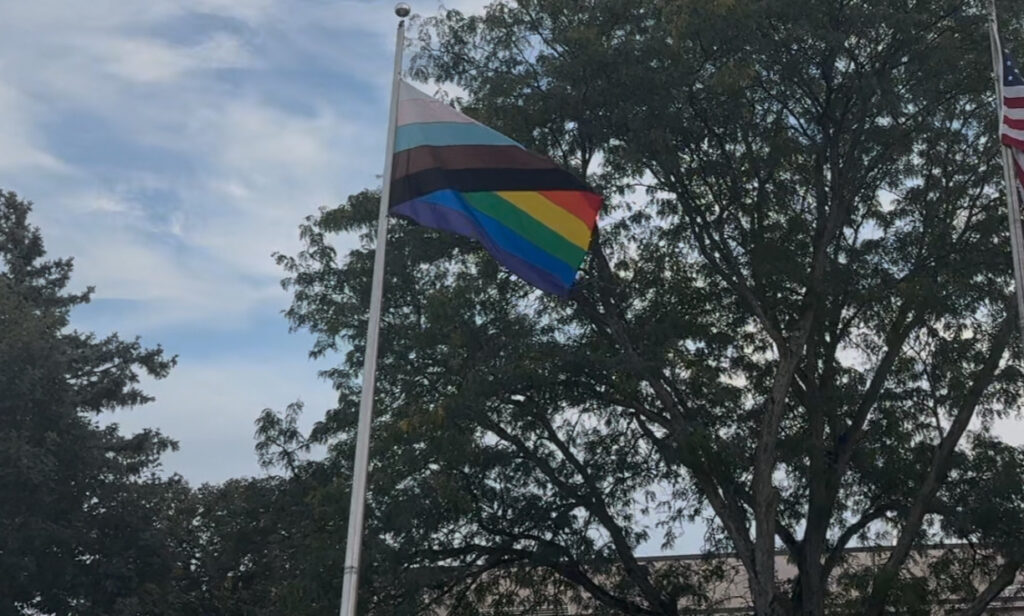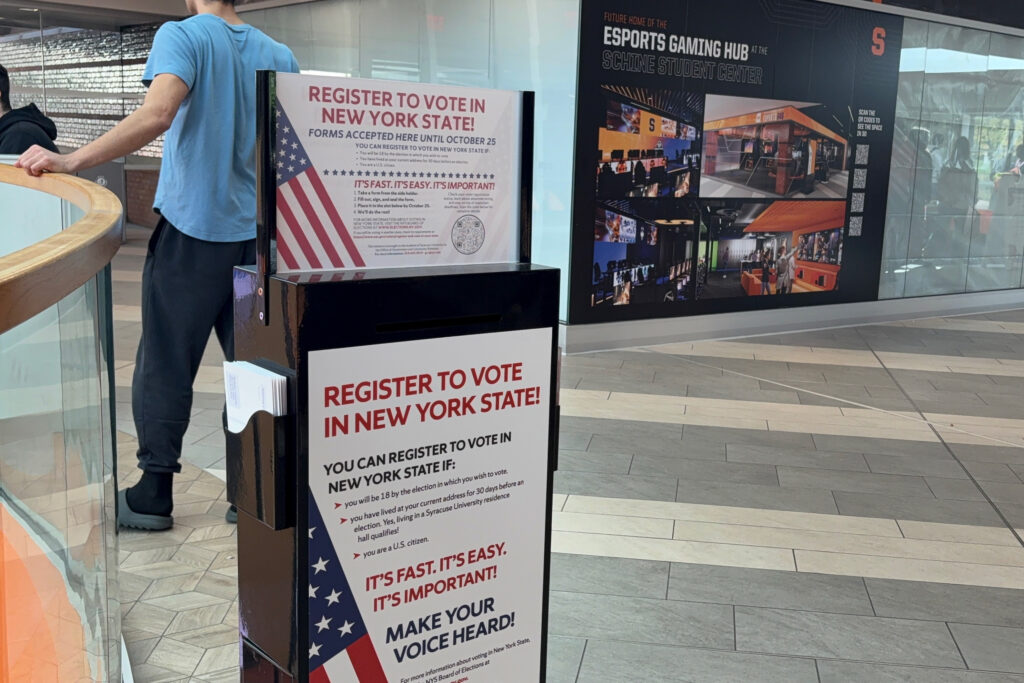VIDEO TRANSCRIPT: First-Time Voters Share Thoughts on Proposed New York State Amendment
OLIVIA FRIED: I think that’s incredible that they’re obviously expanding it but then also expanding it in so many different facets. When you’re talking about um gender discrimination, sexuality discrimination,national origin discrimination, so I think that they really touched on everything and I think that’s really exciting
BRETT LAFEMINA: So many different branches of discrimination that extend beyond this race. I think it’s super important especially now that society is becoming more aware of LGBTQ identities it’s, it’s important to address the discrimination legally
OLIVIA FRIED: We think about the law of the land being the U.S. Constitution, but obviously when we talk about law making and governance and even just voting and the importance of local voting and the role that that plays. We obviously know it’s important to vote local because of the local politicians and their role but then also local laws.
BRETT LAFEMINA: I need to learn more before I start voting on things, because I would not want to vote against something like that and not know what it is.
Syracuse, N.Y. (NCC News) – First-time voters in New York could play a key role in the passing of an amendment to the state’s constitution this November. The amendment, known as Proposal Number One, plans to expand anti-discrimination protections and will be on the ballots within the state.
Formerly known as the New York Equal Rights Amendment, the proposition would revise Article I, Section 11 of the constitution to include identities such as ethnicity, national origin, age, disability, sexual orientation, gender identity, pregnancy status and reproductive healthcare and autonomy as constitutionally protected from discrimination. Currently, race, skin color and religion are the only constitutionally protected identities.
While discussing the implications of expanding protected identities, first-time voters expressed support. Brett LaFemina, a senior at Syracuse University and registered voter in New York, elaborated on how the proposed amendment’s widespread protections acknowledges the varied types of discrimination a person may experience.
“There’s so many different branches of discrimination that extend beyond just race,” LaFemina said. “I think it’s super important, especially now that society is becoming more aware of LGBTQ identities, it’s important to address the discrimination legally.”

While New York is not considered a battleground state for the upcoming presidential election, young voters still have the chance to substantially influence internal state matters on the ballot such as Proposal Number One. As of mid-August, 42.7% of estimated 18 year olds in the state are registered to vote; in Onondaga County, 48.5% are registered.
As of Aug. 2023, about 66% of voters in the United States aged between 18 and 24 years old report aligning with or leaning toward the Democratic Party, while the remaining 34% claim to align with or lean toward the Republican Party, according to Pew Research Center.
Olivia Fried, a junior at Syracuse University and registered voter in New York, noted the widespread nature of the proposed expansion. She said that it appeared to cover many different concerns among the voting population at once.
“I think that’s incredible that they’re obviously expanding it,” Fried said. “But then also expanding it in so many different facets – when we’re talking about gender discrimination, sexuality discrimination, national origin discrimination – so I think that they really touched on everything, and I think that’s really exciting.”
While young voters tended to express support for the proposed amendment, conservative-leaning groups have taken a stance against it. Student organizations such as Students for Life Action, a group working to create student-centered movements against the expansion of abortion in the United States, take issue with constitutionally adding protections for reproductive healthcare and autonomy.
Students for Life Action stated, “A ‘NO’ vote will stop the amendment from passing, stopping the expansion of abortion in the state,” in an article on its website. The group also refers to ballot referendums, such as Proposal Number One, as the “…preferred tactic of the abortion industrial complex and their corporate funders,” while claiming they are purposely designed to confuse voters.

Meanwhile organizations such as Planned Parenthood and the New York Civil Liberties Union express support for the amendment. The NYCLU explained in a statement on its website that the passage of the amendment would not only protect New Yorkers, but those coming to the state to access various forms of care.
“Increasingly across the country and in New York, women face criminal and civil consequences for their pregnancy outcomes, including miscarriage and stillbirth,” the NYCLU said. “The ERA rightfully covers pregnancy outcomes to help protect people from punishment and prosecution.”
The deadline to register to vote in New York is Oct. 26 for those seeking to participate in the Nov. 5 general election. More information can be found online on the New York State Board of Elections website.
